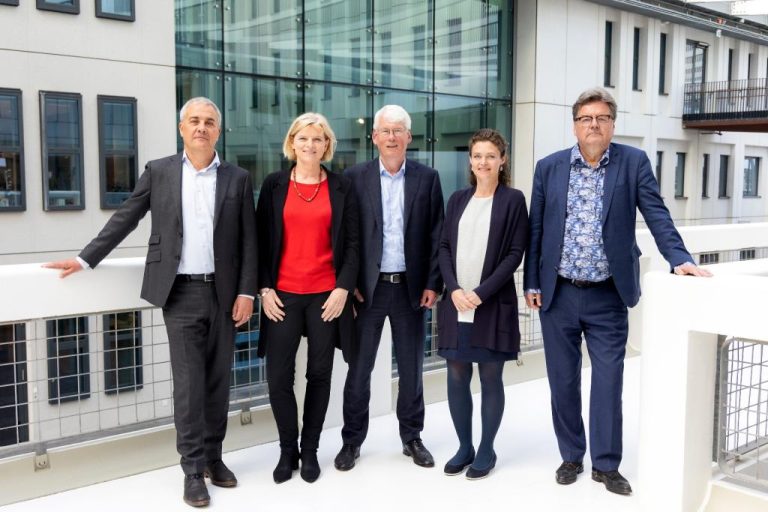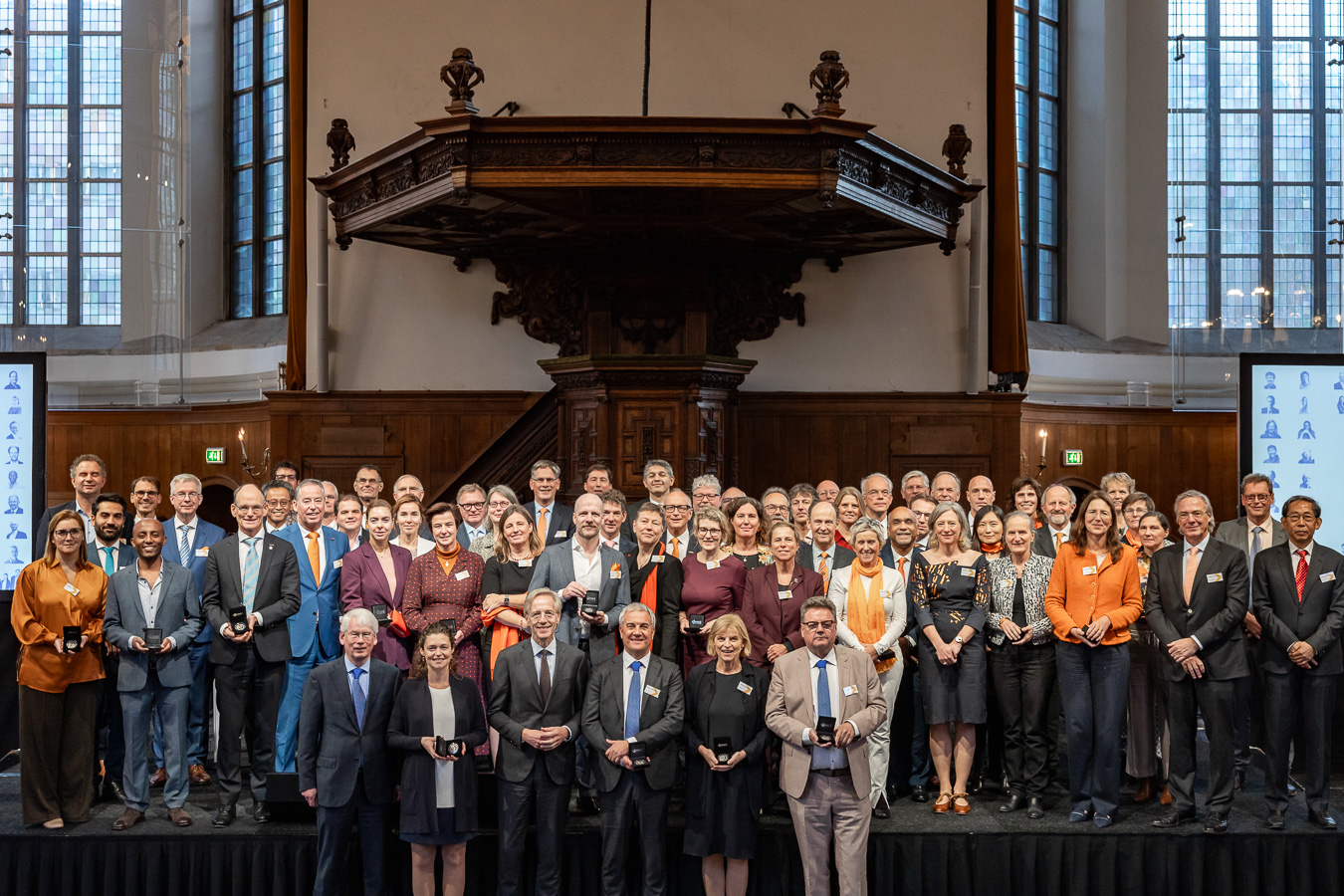The Netherlands Academy of Engineers welcomed its first 62 members last month. What does the NAE hope to achieve? Delta spoke to two Board members.
NAE's 62 fellows received a medal reading 'Connect to Innovate' at their installation. (Photo: Maarten Nauw)
The Netherlands recently got a new engineering community: the Netherlands Academy of Engineering (NAE). The United States of America, the United Kingdom, Ireland, as well as India, Russia and China already have similarly named and comparable institutes. The academies’ objective is often to use technology more effectively to solve societal problems.
The Dutch NAE welcomed its first 62 selected members, called ‘fellows’, at a solemn meeting at the Nieuwe Kerk in The Hague on 13 November 2023. Twelve of them are associated with TU Delft.
Almost a year earlier, on 14 December 2022, the NAE was officially established. After subsidies granted by the Ministries of Economic Affairs and Education, Culture and Science (together EUR 500,000 per year for nine years), the NAE went public for the first time in May 2023.
The NAE is the continuation of the former association called the Netherlands Academy of Technology and Innovation (AcTI). “A gathering of influential people, engineers from business and science,” is how Inald Lagendijk describes AcTI. Besides being a Professor of Cyber Security at TU Delft, Lagendijk is also a board member of the NAE. As is Sjoukje Heimovaara, Chair of the Board of Governors of Wageningen University and Research, and Vice-Chair of the NAE. Delta spoke to them.

The board of the NAE consists of (from left) Inald Lagendijk, Sjoukje Heimovaara, Henk van Houten, Eline van Beest and Ton van der Steen. (Photo: Barbra Verbij)
Why was it important to establish the NAE?
Heimovaara: “We saw an opportunity, with contributions from the Ministries of Economic Affairs and Education, Culture and Science, to set up an academy that is on a par with the KNAW (Royal Academy of Sciences, Ed.). There are plenty of social, technical and economic opportunities. The NAE wants to bring influential people together to really mean something for the engineering ecosystem, and thus, for the Netherlands.”
What do you understand by the ‘engineering ecosystem’?
Heimovaara: “This is the set of companies, knowledge institutions, social institutions and governments that adopt innovations to achieve a more effective approach to societal challenges. Examples include health, the climate, the environment and water management.”
Couldn’t this have come from the KNAW or the Royal Institute of Engineers (KIVI)?
Lagendijk: “The KNAW is a highly respected institute in the Netherlands of which I myself am a member. Many scientific qualities come together there, resulting in excellent advice. But the engineering disciplines, which translate scientific knowledge into innovation and concrete artefacts (man-made objects, Ed.) are less well represented there.”
‘We look for the figureheads in technology’
Heimovaara: “KIVI is a membership organisation for engineers. It represents the whole broad engineering field and does a lot of great things. The NAE is looking more selectively for the figureheads of technology to further improve the underlying ecosystem.”
How will it do that?
Lagendijk: “There’s no telling yet. On the day of the kick-off, we had a meeting that addressed the questions of ‘what do you think can be improved in the Netherlands?’, and ‘what do you want to get involved in?’
Let’s face it, the Fellows are the most important people in this organisation. The Board has created a structure and within it the Fellows will suggest what they think is important.”
Heimovaara: “One of the questions that came up during that meeting was how we can get the Dutch youth more interested in engineering. It is shocking to see how few technical people we train compared to the rest of Europe.” (15.5 students out of a thousand. The European average is 21.9 per thousand. Source Eurostat, Ed.)
So the fellows determine the topics, but how does the Board plan to accelerate innovation?
Heimovaara: “By working on three levels. We want to play a pivotal role by bringing people from business, knowledge institutions and society together around certain social themes. This is also reflected in our motto: connect to innovate.
We also want to advise on techno-societal topics in newspapers and talk shows or directly to politicians. And we plan to organise constructive debates or forums, where fellows and young engineers can learn from each other. The latter are high-profile engineers who we will invite as cross-thinkers for a certain period.”
‘A relevant part for students is the forums’
What does the NAE hope to signify for engineering students?
Heimovaara: “Our Fellows are diverse in terms of background, working environment and gender. I hope this will show them that there is a path for everyone in engineering, whoever you are and wherever you come from.”
Lagendijk: “Another relevant part for students is the forums. We don’t organise them specifically for students, but they can attend them.”
- Read all about the NAE on nae.nl
Do you have a question or comment about this article?
j.w.wassink@tudelft.nl


Comments are closed.